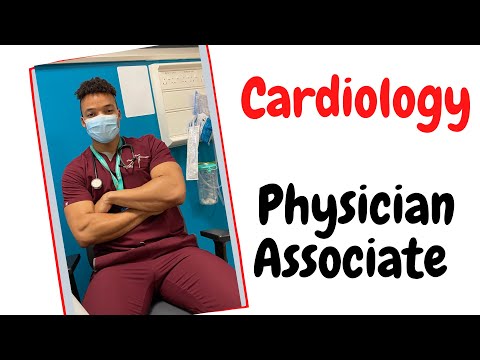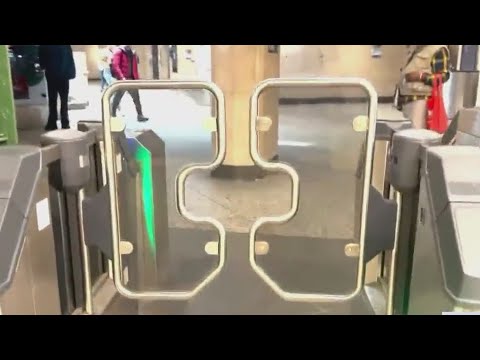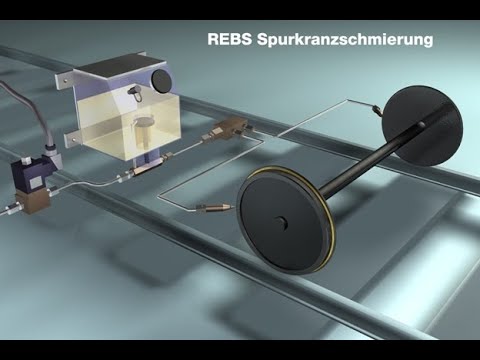High-Paying Cardiology PA Career: Job Description & Salary

Cardiology Physician Assistant Job Description Template
Cardiology Physician Assistants play a crucial role in the field of cardiology, working alongside cardiologists to provide comprehensive care to patients with heart conditions. Their job description includes diagnosing and treating cardiovascular diseases, conducting physical examinations, and interpreting diagnostic tests such as EKGs and echocardiograms. Collaboration: One important aspect of a Cardiology Physician Assistant’s role is their collaboration with the cardiologist and the healthcare team. They work closely with the cardiologist to develop treatment plans, prescribe medications, and monitor the progress of patients. This collaboration ensures that patients receive the best possible care and have access to a wide range of treatment options. Education: Another crucial aspect of a Cardiology Physician Assistant’s job is patient education. They play a vital role in educating patients about their heart condition, the importance of medication adherence, lifestyle modifications, and the overall management of their cardiovascular health. Patient education empowers individuals to take an active role in their own care, leading to improved outcomes and a better quality of life. Overall, Cardiology Physician Assistants are highly skilled healthcare professionals who provide essential support in the diagnosis, treatment, and management of cardiovascular conditions. Their expertise and collaboration with the healthcare team contribute to the overall well-being and cardiac health of patients.Cardiology Physician Assistant Responsibilities
Cardiology Physician Assistant Requirements
How Much Does A Cardiology Physician Assistant Make?
Cardiology Physician Assistant Salary
| Experience Level | Annual Salary |
|---|---|
| Entry Level | $90,000 – $110,000 |
| Mid-Career | $100,000 – $130,000 |
| Experienced | $120,000 – $150,000 |
| Senior | $140,000 – $180,000 |
A Cardiology Physician Assistant (PA) is a healthcare professional who works in collaboration with cardiologists to provide medical care to patients with heart conditions. They perform various tasks such as conducting physical examinations, diagnosing and treating cardiovascular diseases, prescribing medications, and assisting in invasive procedures.
The salary of a Cardiology PA can vary based on their experience level. Entry-level PAs typically earn an annual salary between $90,000 and $110,000. As they gain more experience and expertise, their salary can increase to a range of $100,000 to $130,000 for mid-career professionals. Experienced PAs can earn between $120,000 and $150,000 per year, while senior PAs with extensive experience may earn salaries ranging from $140,000 to $180,000.
It’s important to note that factors such as geographic location, practice setting, and additional certifications can also impact a Cardiology PA’s salary. Nevertheless, this profession offers competitive compensation and rewarding opportunities for those interested in cardiology and providing specialized care to patients with heart conditions.
Cardiology Physician Assistant Salaries by Country
Top Paying Countries for Cardiology Physician Assistant
| Country | Average Salary (USD) |
|---|---|
| United States | $110,000 |
| United Kingdom | $95,000 |
| Canada | $85,000 |
| Australia | $80,000 |
| Switzerland | $75,000 |
Cardiology Physician Assistants in the United States earn the highest average salary of $110,000 per year, making it the top paying country for this profession. The United Kingdom follows with an average salary of $95,000, while Canada offers an average salary of $85,000. Australia and Switzerland complete the list with average salaries of $80,000 and $75,000 respectively. These figures reflect the compensation levels for Cardiology Physician Assistants and highlight the countries where professionals in this field can expect higher earning potentials.
A video on the topic Cardiology Physician Assistant
Video Source : Reon SelemanInterview Questions for Cardiology Physician Assistant
1. What made you decide to pursue a career as a Cardiology Physician Assistant?
I have always been fascinated by the cardiovascular system and the impact it has on overall health. Becoming a Cardiology Physician Assistant allows me to combine my passion for medicine with my desire to help patients manage and treat cardiac conditions.
2. Can you explain your experience in diagnosing and treating common cardiac conditions?
As a Cardiology Physician Assistant, I have extensive experience in diagnosing and treating common cardiac conditions such as coronary artery disease, heart failure, arrhythmias, and hypertension. I am skilled in performing physical examinations, ordering and interpreting diagnostic tests, prescribing medications, and developing comprehensive treatment plans.
3. How do you stay updated with the latest advancements and research in the field of cardiology?
I believe in lifelong learning and staying updated with the latest advancements and research in the field of cardiology. I regularly attend conferences, workshops, and seminars related to cardiology. Additionally, I subscribe to various medical journals and publications to stay informed about new research and treatment options.
4. How do you ensure effective communication with patients and their families?
Effective communication is crucial in providing quality healthcare. I always strive to establish a good rapport with my patients and their families by actively listening to their concerns, explaining medical information in a clear and understandable manner, and involving them in the decision-making process regarding their treatment plan.
5. How do you handle a difficult or challenging patient in a cardiology setting?
Dealing with difficult or challenging patients can be demanding, but it is important to approach them with empathy and understanding. I try to identify the underlying cause of their behavior and address their concerns with patience. I also involve other members of the healthcare team, such as social workers or psychologists, if necessary.
6. Can you describe your experience in assisting with invasive cardiac procedures?
Throughout my career as a Cardiology Physician Assistant, I have gained significant experience in assisting with invasive cardiac procedures such as cardiac catheterizations, angioplasties, and pacemaker insertions. I am proficient in ensuring patient safety during these procedures and providing immediate post-procedure care.
7. How do you manage a patient’s cardiac medication regimen?
Managing a patient’s cardiac medication regimen requires careful attention to detail and ongoing monitoring. I ensure that patients understand the importance of taking their medications as prescribed and educate them on potential side effects and drug interactions. Regular follow-ups and medication adjustments are also essential to optimize treatment outcomes.
8. How would you handle a medical emergency in a cardiology setting?
In a medical emergency, it is crucial to remain calm and act swiftly. I would immediately assess the patient’s condition, initiate appropriate interventions such as CPR or defibrillation if necessary, and notify the cardiologist or other healthcare professionals for further assistance. Effective communication and collaboration are key in managing medical emergencies.
9. Can you discuss your experience in educating patients about lifestyle modifications for managing cardiac conditions?
Education plays a vital role in empowering patients to make positive lifestyle changes for managing their cardiac conditions. I have extensive experience in providing patients with information and resources on diet, exercise, smoking cessation, stress management, and medication adherence. I work closely with patients to develop realistic and achievable goals to improve their overall cardiovascular health.
10. How do you prioritize and manage your workload in a cardiology practice?
Prioritizing and managing workload effectively is crucial in a cardiology practice to ensure optimal patient care. I prioritize tasks based on urgency and level of patient acuity. I also utilize electronic medical records and scheduling systems to streamline workflow and ensure that all patient needs are addressed in a timely manner.






